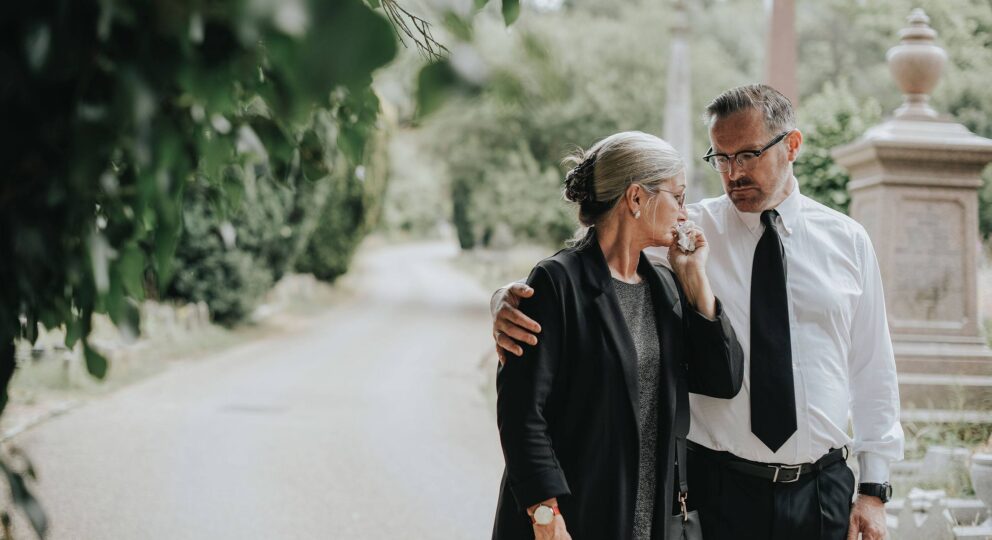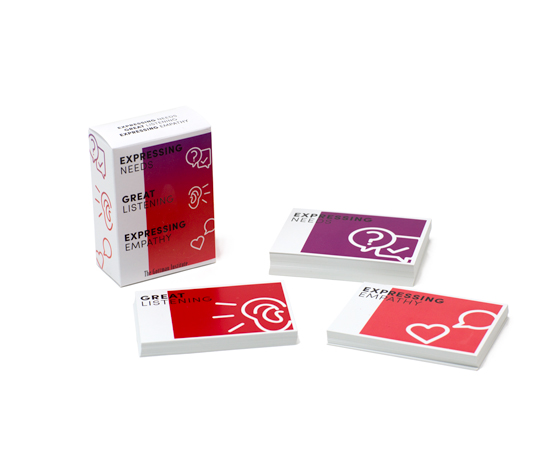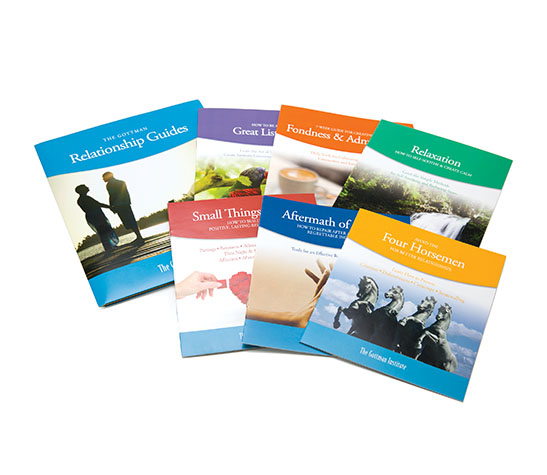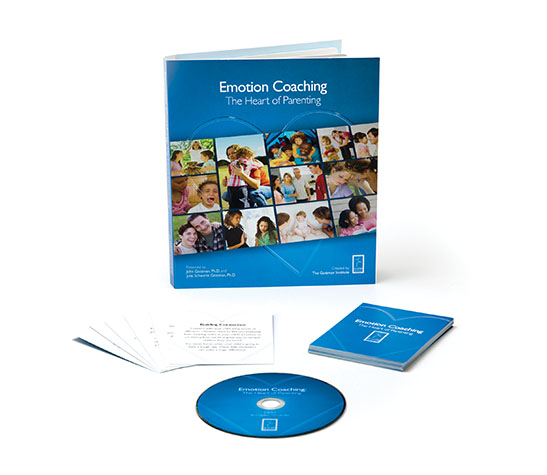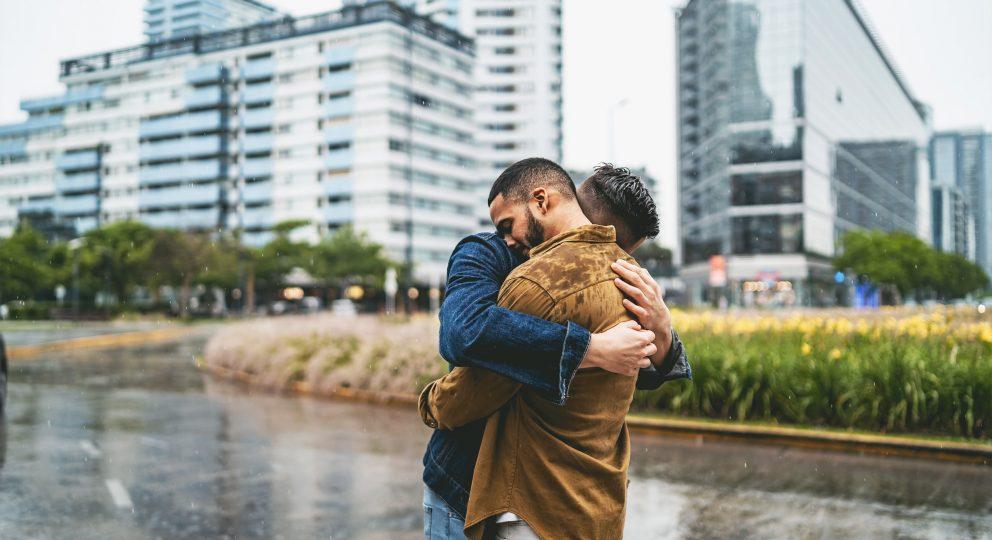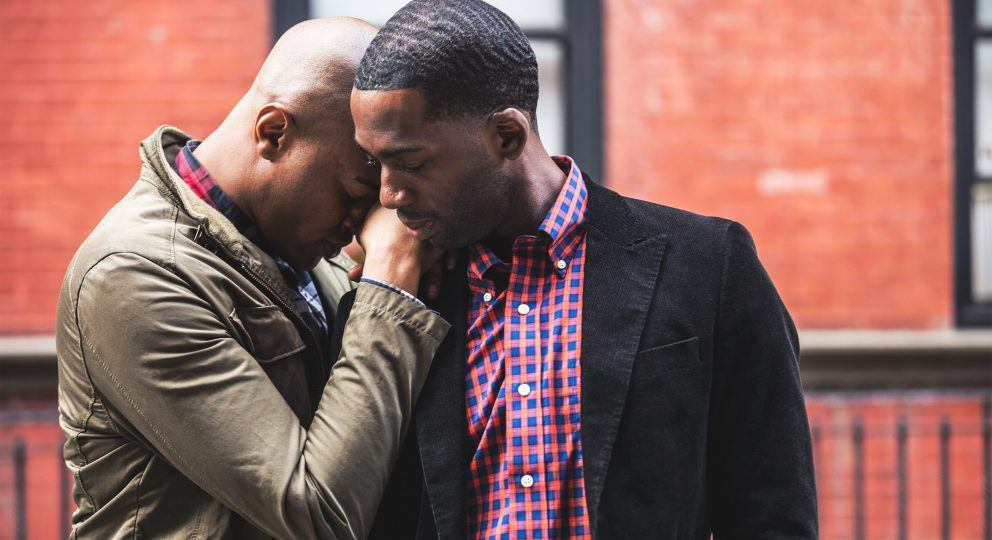Have you ever seen grief outlawed? Have you ever felt like grief was just simply not allowed? Like it was wrong and breaking some unwritten rules?
People outlaw grief through pithy (and useless) sayings: “He’s in a better place,” or, “It will all work out in the end,” or, “At least it wasn’t any worse,” or, “Don’t be sad about what you lost, be grateful for what you had.” Basically, folks communicate to the griever that they should not be sad—that their grief is not right or welcome.
Sometimes, we outlaw our own grief, failing to give value to our feelings; seeing the tears as intruders that must be defended against. But grief is not on a timetable and doesn’t always run on schedule. Sometimes it even leaves the station, only to double back and park again. And stay.
I’ve known this erratic, unrelenting, grief.
My baby sister died when I was six years old. I can still remember holding her in the hospital, smelling the antiseptic, excited, and wondering what those funny tubes in her nose were for. I remember her tiny casket and the white lace. I remember the August sun that shone so brightly at her graveside, creating vivid colors and casting deep shadows.
My mother got the diagnosis when she was pregnant with my little brother. Breast cancer. She had a c-section and a mastectomy in the same surgery, and I’ll never forget the irony of bottle feeding a newborn in the oncology department, waiting for mom to finish her radiation. I remember her back spasming as I drove her home, with an infant crying in the backseat. She died that year.
I was in my clinical rotations at a mental health facility when I got the call. Dad was gone. We had expected the brain cancer to wait a few more days, and I was planning to visit him one last time after my rotation. I was going to play guitar and sing for him. I never made it.
After some of those losses, memories were allowed, and even encouraged. Grief was given space to breathe, space to weep. We were given space to heal. In other cases, photos were taken off the walls, memories were redacted, and the deceased became a persona non grata.
Grief was outlawed, and it was horrible.
So what happens when grief gets outlawed? Often, it doesn’t just disappear, it goes underground. It becomes a tectonic plate, storing energy, swaying, resisting movement, and then exploding in unanticipated and unpredictable ways. Have you seen this?
A tectonic plate can store a heck of a lot of energy. Sort of like grief, once it’s outlawed. It descends below the surface and everything looks fine—until it’s not. Because once it’s triggered, once it slips, all that stored energy has to go somewhere, and heaving tectonic plates can cause destruction far, far away.
So please allow grief, in your own heart and in the hearts of others. Don’t send it underground. If you’re uncomfortable with other peoples’ grief, you might want to look deep, deep down in your own soul and see if there’s some long-outlawed, long-buried grief. If you find some, begin gently to see it, vent it, feel it.
It’s a terribly difficult thing, walking with someone through the darkness. Bearing witness to another’s pain tends to erase language, making us unsure of what to do or what to say. We think we have to say something, but we just don’t know what to say. It feels like a minefield and we’re terrified of stepping off the well-worn path of cliches.
So what are we to do? What are we to say?
Don’t outlaw, do this instead
I recently took a stroll back down into my own valley of grief and asked some questions: What was helpful during my mother’s terminal illness? What wasn’t? What were great things kind people said to me after my dad passed away? What things could have been (and should have been) left unsaid?
As I journey back, it occurs to me that the most helpful people were those who were not afraid of me. They were comfortable enough in their own skin that they didn’t seem uneasy around me. They didn’t expect me to “get over it” and “move on,” but they also didn’t expect me to cry all the time. They treated me with grace and dignity, acknowledging that I was still, in fact, me. I am forever grateful for their wisdom and kindness.
Here are a few observations gleaned from my time spent trudging through the valley; here are some lessons learned from those who comforted and those who tried.
- Don’t be afraid of me. Yes, I might cry. And I might laugh. And those might happen in the same sentence (although one does not necessarily precede the other, and I might switch the order around randomly just to mess with you.) Crying does not always indicate that you did or said something wrong.
- Give me the freedom to “go there.” Or not. Tell me that you care and that you want to be sensitive to where I’m at, but feel free to say something like, “Hey, you want to just go out and have some fun? If you want to talk about it, that’s fine, and I’ll listen, but if you don’t want to go there, no problem.” A good friend gave me this type of permission after my mom died. We were both teenagers, but I still regard his statement as one of the most helpful, most healing, and most loving things anyone’s ever said to me.
- Don’t be afraid to talk about it. Feel free to ask me about her favorite time of year (summer) or his favorite food (ice cream), or what I miss about “home.” Please listen when something random reminds me of something random. Smile with me. Cry with me. Just please, don’t be afraid of me.
- Encourage me to remember. Memories are gifts, not to be shunned or outlawed.
- Remember that grieving people are often expected to deal with their own grief on top of family members’ grief, church members’ grief, the neighbor’s grief. Keep that in mind. Be sensitive about how you expect the grieving person to comfort you. Your loss may be very real too and allowing the grieving person to comfort you might be healthy for both of you. But it might not be helpful for both of you. Just be aware and recognize if the roles of mourner and comforter flip.
- Remember that grief isn’t forever, but it is. I won’t always sob, but I will always feel this loss deeply. I won’t always cry when that song comes on the radio, but I might. Certain songs will be forever linked to my mom’s illness and death. Every griever will have songs or places or foods or things or events like this. (It should be noted here that the type of deep sadness and grief that incapacitates the griever for long periods of time, or greatly interferes with normal, daily life and functioning, should be processed and felt with the help of a professional counselor.)
- Lastly, remember that comforting another person is a highly spiritual endeavor; when it’s done with love and purposeful awareness, you can bring deep comfort and visceral help.
The next time you come across someone who’s grieving a loss, remember that they probably don’t need a lecture or a pithy saying. They don’t need a cliche or a vapid truism. They certainly don’t need you to outlaw their grief.
They do need freedom. They need freedom to cry, or not to cry. They need to know that you care about them and their memories.
And they could maybe use a hug.
Sign up for the Love Notes Newsletter
Get the latest on relationships, parenting, therapy and more from the experts at The Gottman Institute, plus get a FREE download every month!
.
